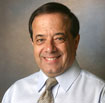Following the logic, or “grammar” of Trinity and Incarnation,
McGill argues that a God who is absolute, self – enclosed and contained, one who is superior and transcendent, is not the mark of divinity revealed in Jesus; and that to admire and bow down to God because he is immune from all need and dependence – is to worship falsely: “For the true God exists eternally – in one of his modes – as the Son – that is the state of dependence” (74). If the incarnation is an accomplished fact, then the presence of the true God is not invasive or interruptive but rather noncompetitive.
McGill shows that, in the place of self-sufficient autonomy, patristic theologians saw the defining mark of divinity as the totality of self-giving and other – receiving love which proceeds between the Father and the Son. The Father gives all he has to the Son; the Son obeys the Father and offers all he has back to the Father. Thus the Father and the Son are not divine in terms of the richness of reality they posses and pass within themselves, since they do not exist closed off within their own being. Instead, they are divine in terms of the richness of the reality they communicate to and share with the other (76-77).
Drawing from the logic of Trinitarian faith, McGill’s work helps to illumine our understanding of the nature of divine power and its effects upon and within human life and speech. If force is no attribute of God, then God’s divinity, as revealed in the humanity of Christ, does not consist in the ability to push things around, to impose the divine will and purpose from the security of detached, self – enclosed remoteness, or to sit in grandeur while the world carries out the divine demands.
Far from being a neutral, impersonal force, distant and external to the world, God’s glory enters into the world in the form of slavery, humiliation, suffering and death on a cross. Far from imposing, God draws near, invites and enters into communion. Far from demanding service from others for enhancing divine influence, God generously gives and expends the divine life in service to others for their enhancement. The Triune God acts toward the world in this way because, in himself, God is a communion of self-giving love: by exercising divine powerfulness in self-giving, by how much God nourishes each creature, and by how he fully communicates and shares his own life, reality, and goodness with the other (74-77).
McGill calls attention to a significant, but much overlooked theological and moral truth: “we are as the power that rules us” (90). Rather than asking which kind of homiletic style or methods “work” to produce results or meet needs, a more theologically and pastorally appropriate question for a preacher to ask might be: “What is the nature of the God whom we worship, and how does this power transform our life and speech?”
This article is a revision of material taken from his forthcoming book, We Speak Because We Have First Been Spoken: A “Grammar” of the Preaching Life (Eerdmans, 2009).

